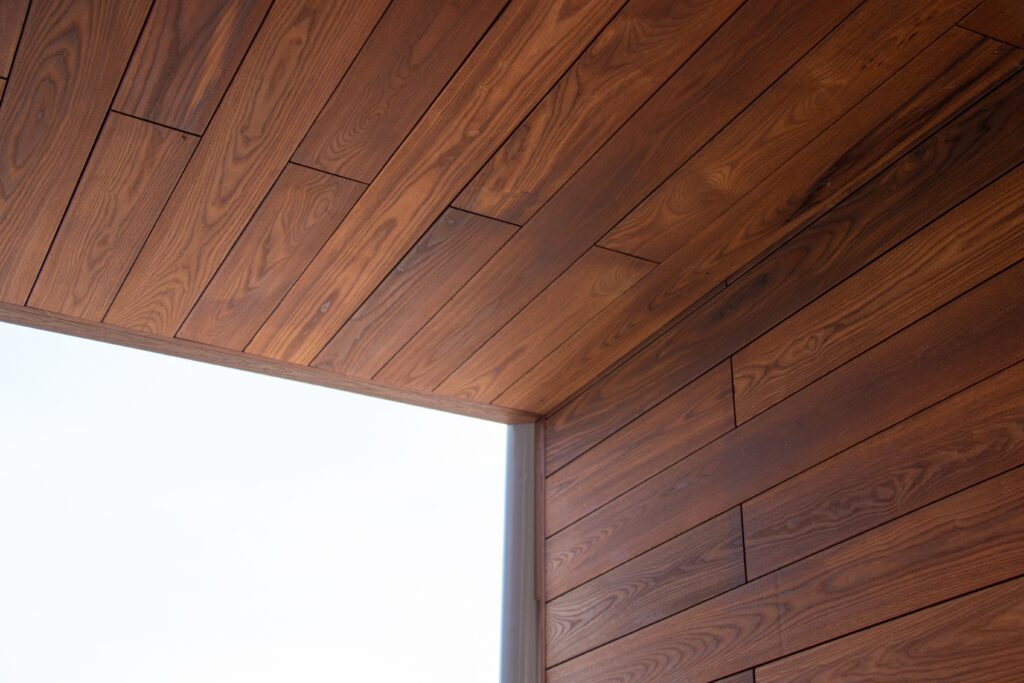
Wood has long been a popular choice for construction projects due to its natural beauty and versatility. However, the traditional method of treating wood with chemicals to enhance its durability comes with potential health and environmental risks. In recent years, thermally modified wood has emerged as a safer and more sustainable alternative. In this blog post, we will explore the dangers associated with treated wood and shed light on the numerous advantages of thermally modified wood.
Dangers of Treated Wood
Chemical Exposure: Treated wood often contains toxic chemicals, such as chromated copper arsenate (CCA) or alkaline copper quaternary (ACQ), which are used to prevent decay and insect infestations. Exposure to these chemicals, especially through contact or inhalation of sawdust during construction or demolition, can pose health risks to humans and animals.
Environmental Impact: The chemicals used in treated wood can leach into the soil and groundwater, potentially contaminating the surrounding environment. This pollution can harm plants, animals, and ecosystems, and contribute to long-term environmental degradation.
Disposal Challenges: Disposing of treated wood can be problematic due to its hazardous nature. Burning treated wood releases toxic chemicals into the air, while landfilling poses risks of groundwater contamination. Proper disposal methods are essential to mitigate these environmental hazards.
Advantages of Thermally Modified Wood
Chemical-Free: Thermally modified wood is created through a heat treatment process that alters the wood’s cellular structure. No chemicals are used during this process, making it an eco-friendly and safe alternative to treated wood.
Enhanced Durability: The thermal modification process improves the wood’s resistance to decay, rot, and insect attacks. The heat treatment reduces moisture absorption, making it less prone to warping, shrinking, or swelling. As a result, thermally modified wood has an extended lifespan and requires less maintenance.
Stability: Thermally modified wood exhibits enhanced dimensional stability compared to untreated or treated wood. It is less susceptible to expansion and contraction caused by moisture and temperature changes, making it an excellent choice for various climate conditions.
Improved Aesthetics: The thermal modification process gives wood a beautiful, consistent appearance. The wood’s natural color darkens to a warm, rich hue, resembling tropical hardwoods. This aesthetic appeal adds a touch of elegance to any project.
Sustainability: Thermally modified wood is sourced from sustainably managed forests, reducing the environmental impact. The absence of chemicals in the treatment process and the extended lifespan of the wood contribute to a more environmentally friendly choice.
Ease of Maintenance: Due to its increased durability, thermally modified wood requires minimal maintenance. It resists fading, splintering, and decay, eliminating the need for regular staining, sealing, or chemical treatments.
Your Reliable Source for Thermally Modified Wood in Midwest & Southern Region
When you need assistance with thermally modified, contact Phillips Lumber & Millwork in Indiana. Our focus is to provide quality material at an affordable price. Please give us a call (812) 873-6758 to talk about the options we can assist you with. We have served our nearby region, including major cities such as Louisville, Kentucky; Cincinnati, Ohio; Indianapolis, Indiana with custom thermally modified material and provided the expertise to help ones choose the right product for their projects.